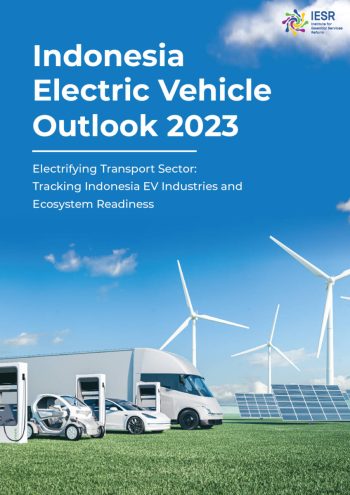Electrifying Transport Sector: Tracking Indonesia EV Industries and Ecosystem Readiness
Today, electric vehicles is seen as one of technology for the decarbonization of road transportation. Electric vehicle sales have increased exponentially in recent years, with improved range, performance, and model. BNEF forecasts that global sales of EVs will reach a record of 10.6 million vehicles in 2022, despite supply chain bottlenecks and inflation. This is an increase of nearly 60% over last year. EV sales are expected to reach 21 million by 2025.
Electric vehicles have been included in the mitigation action of our country. To meet the emission reduction target under Indonesia’s Nationally Determined Contribution (NDC), 2-electric wheelers must reach 1.8 million by 2025 and 13 million by 2030, while 4-electric wheelers must reach 0.4 million by 2025 and 2 million by 2030. However, this target is still far from meeting the Paris Agreement’s 1.5°C warming target. According to the IESR study, in order to do so, EVs must reach 110 million E2Ws and E4Ws by 2030, followed by 3 million Low Duty Vehicles (LDV) and 2.4 million buses.
It is an ambitious target, but one that must be met if we are to wean ourselves off fossil fuels. To achieve this, the government must direct its efforts toward creating an enabling environment for the adoption of electric vehicles. Many countries begin with a clear target, supported by policies to increase demand for EVs, develop their infrastructure, gradually develop manufacturing by strengthening supply chains, and push for mass adoption.
Indonesia Electric Vehicle Outlook 2023 as one of IESR’s flagship reports. IEVO intends to track and monitor the progress of the energy transition in the transportation sector. This report is our contribution to raising awareness and understanding among all stakeholders, as well as shaping priorities and policy enhancements of actions toward transportation decarbonization to meet the net-zero emission target by 2050.
Electric Vehicle, Transportation Electrification, Energy Transition, Decarbonization, NDC, IESR, Indonesia Electric Vehicle Outlook, Emission Target, Emission Policy, Future of Electric Vehicles in Indonesia

